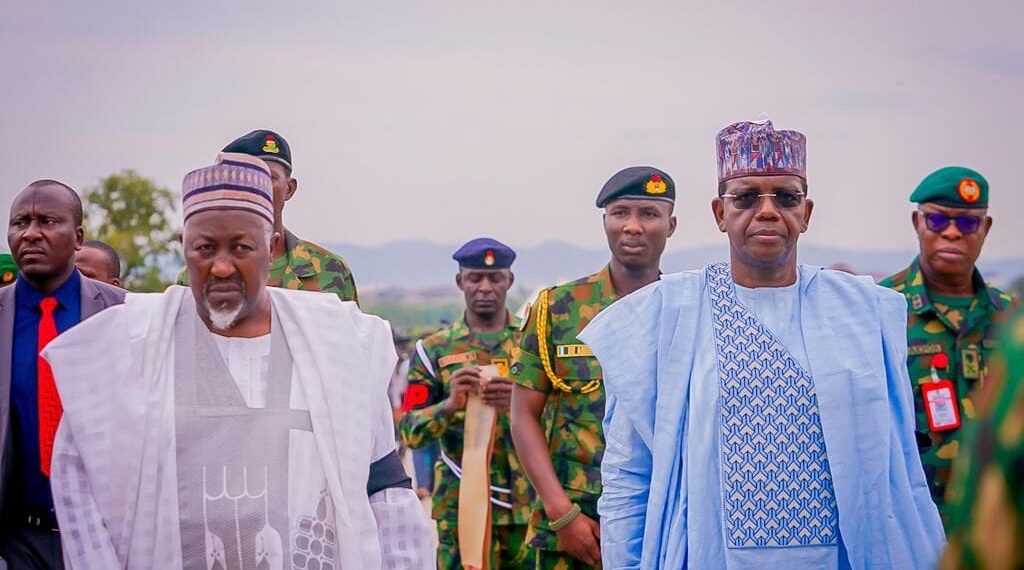Nigeria is bogged down by a myriad of spiralling security challenges. Almost all parts of the country’s six geopolitical zones are dealing with one security challenge or another.
While the country has yet to fully deal with the Boko Haram terrorism that has ravaged most parts of the North-east region, in the North-west region, terror gangs, locally called bandits, regularly attack rural communities, and engage in widespread kidnapping for ransom.
Thousands of people have either been killed, abducted, or displaced in the region.
In the South-east region, secessionist agitation is rife, and thousands of people have been killed by the separatist group, the Indigenous People of Biafra (IPOB) and other copycat criminal groups in the region.
Similarly, in the North-central region, tit-for-tat killings between pastoralists and farming communities have continued unabated for over three decades.
In parts of the region, specifically, in Niger State, Boko Haram has an active franchise, which has been blamed for several ambushes on security operatives, including the downing of two aircraft.
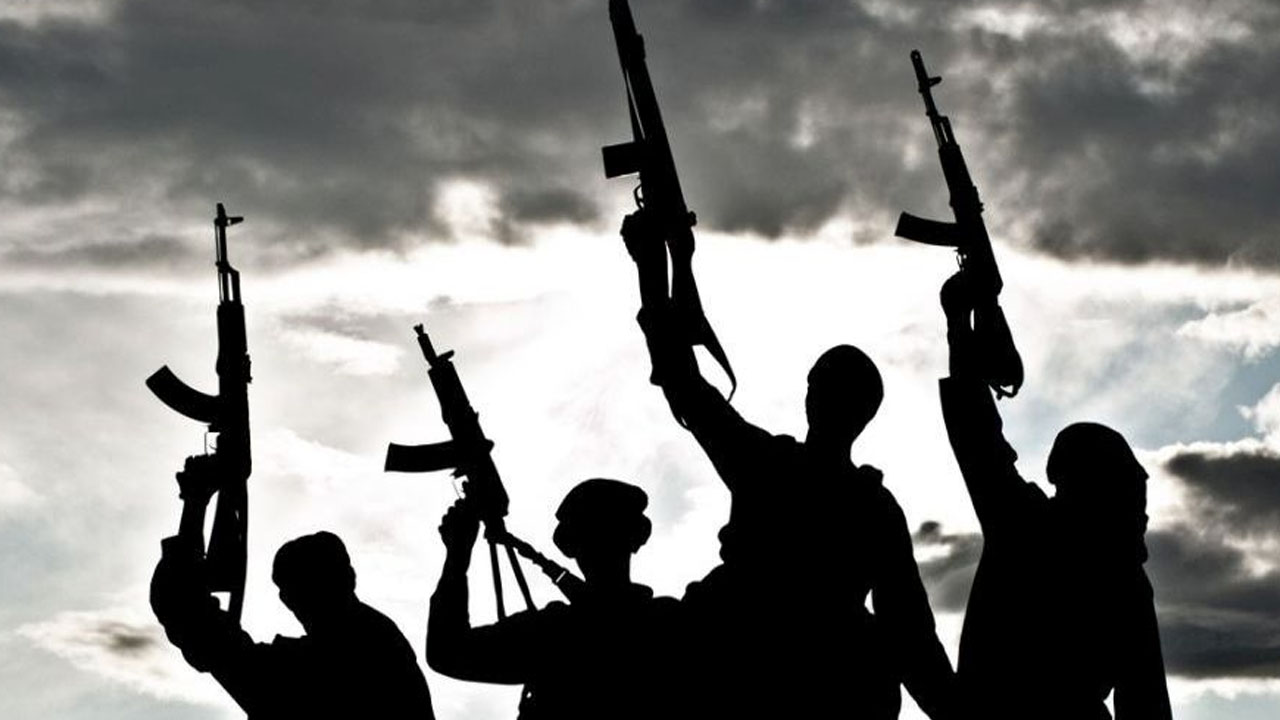
In the South-south region, sea piracy and oil theft have continued with the military accused of involvement in the theft.
In the South-west region, kidnapping, and armed criminality are on the increase.
A 2022 Global Terrorism Index (GTI) report ranked Nigeria as the sixth most terrorised country in the world.
The Boko Haram conflict, for instance, has been for about a decade and a half and has caused the deaths of 35,000 people. More than 1.8 million people were displaced in the three states – Borno, Yobe and Adamawa – where the insurgency was primarily active.
While attacks by non-state actors have reduced in the North-east, insecurity has escalated in other regions.
A recent survey by the News Agency of Nigeria (NAN) revealed that 23 local government areas in Sokoto, Zamfara, and Kebbi are battling insecurity. According to the study, residents in these several communities in the states have either been forced to migrate, enter into agreements with the criminals or live a life of uncertainty under the control of non-state actors.
The new ministers of defence – Mohammed Badaru and Bello Matawalle, have been given the herculean task of rolling back these security threats.
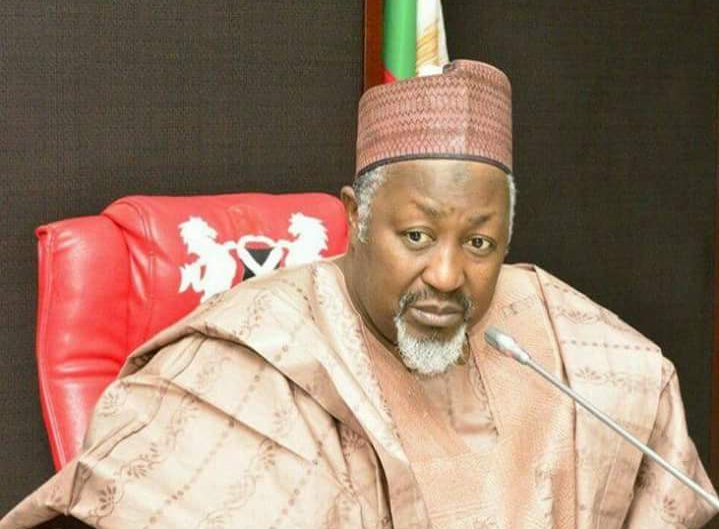
Oil theft, other security challenges in the Southern region
The Nigerian government often blamed low crude production on large-scale oil theft of crude and the sabotage of crude pipelines. This damage has reduced exports, forced some companies to shut down production and crippled the country’s fiscal stability.
Last year, Nigeria lost $4 billion to oil theft at the rate of 200,000 barrels per day. In 2020, crude losses from theft and sabotage amounted to $1.63 billion at the average price of crude $41.65 per barrel, a PREMIUM TIMES analysis revealed. That was 6.10 per cent of the total production for the year.
Nigeria’s oil auditing agency, NEITI, indicated that in 2019, Nigeria also lost 42.25 million barrels of crude oil to oil theft, valued at $2.77 billion.
In 2018, about 53.28 million barrels of crude vanished from Nigeria’s resources. The new defence minister will have to address these gaps to allow the country to realise its full oil export potential in meeting its quota in the global market.
“Over 99 per cent of oil theft in the country was carried out by the army and navy,” said Mr Dokubo after meeting behind closed doors with President Bola Tinubu, at the Presidential Villa.

“Ordinary Niger Delta citizens who are often blamed for these criminal activities are not responsible as they do not have the wherewithal to perform the stealing,” Mr Dokubo said.
But the army has denied the allegations and challenged Mr Dokubo to name the people involved. He has yet to do so.
Aside from oil theft, the south-west region also battles kidnappers, ritual killings and activities of cultists.
In the South-east, the new ministers must come up with a policy that will tackle the influence and activities of the outlawed separatist group, the Indigenous People of Biafra (IPOB).
The group has been blamed for dwindling economic activities in the region because of its weekly sit-at-home order. The group constantly attack security and government facilities. Thousands of people have been killed since 2020 when the group started its armed insurrection. About 287 people were killed from January to May 2022 in the southeast.
IPOB is agitating for the South-east to be carved out of Nigeria and become an independent state named Biafra.
The Director, of Health of Mother Earth Foundation (HOMEF), Nnimmo Bassey, said the military has to review its terms of engagement if it hopes to be more efficient in the Niger Delta and stop oil theft.
“The military was first sent to the Niger Delta in the early 1990s as agents of oppression and suppression. They were effective on that score going by public records of the horrible incidents recorded over time. They are not effective as anti-oil theft agents. It is doubtful whether that should be their job, in the first instance,” Mr Bassey said from his base in Port Harcourt, Nigeria’s petroleum capital.
He said oil theft in the region is mainly done by organised criminal syndicates rather than ordinary residents of the region.
“The basic truth is that oil theft is an industrial activity and can’t be done by poor people. The communities are not the ones stealing the oil, it is being done by those who have technical knowledge of the sector, those with security, as well as political cover.
“The bulk of what we are hearing is oil stealing from the high sea from where the oil is taken out of the country. No poor person can be engaged in that practice. There are loading vessels, barges, and ships. We heard of illegal pipes taking oil to offshore vessels, despite all the facilities the surveillance agents have,” Mr Bassey said.
“It’s now a common conclusion that the oil theft is from the illegal refinery in the bush, which is a slight fraction. This narrative is the public relations stories baked and shared by polluting oil companies. The narrative is a cover-up strategy. The illegal refineries cannot refine the quantum of crude oil stolen in the country.
He also said the practice of burning vessels suspected to be carrying stolen oil and illegal refineries should be stopped immediately as it has far-reaching environmental implications.
“What the Joint Task Force is doing in the south-south by burning down illegal refineries is something that must be condemned because when they burn boats or illegal refineries they are compounding the pollution problem. They are polluting the environment and slowly poisoning the people.
“Illegal refineries can easily be dismantled without burning them because they are polluting the environment. Even ordinary ships are dismantled in specialised shipyards because some parts can create serious ecological problems.
“Burning ships caught up with stolen crude oil is a horrendous activity. Where arrested, they should take it to designated places where the illegal crude is offloaded and never set the ships or boats on fire.”
Overstretched military personnel and low morale
Due to the eruption of security concerns across the country, there is an unprecedented deployment of military personnel all over the country. Because of the incapacity of the police, the military is regularly deploying its personnel to carry out tasks that are traditionally those of the police.
The morale of military personnel is at an all-time low. Several soldiers are absconding from their duty posts while an unprecedented number are resigning.
In 2021, this newspaper reported how 356 soldiers exited the army formally while 24 others left to take traditional titles.
In February, the immediate former minister of defence, Salihu Magashi said the military is overstretched and does not have the required number to combat terrorism and other challenges.
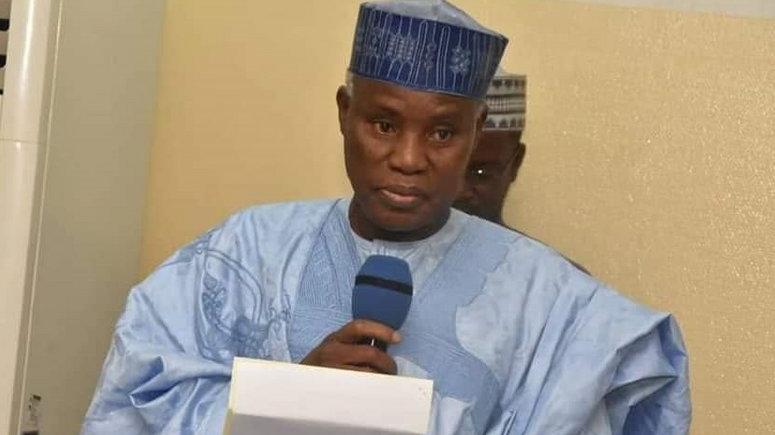
“As of 2022, Nigeria with an estimated population of about 220 million people has a total military strength of about 223,000 personnel.
“This gives a ratio of military personnel to a population of approximately 11,000. This is lower than those of Nigeria’s neighbours except Niger (Republic),” he said.
Mr Magashi suggested that about 12,000 soldiers should be recruited bi-annually to enhance the capacity of the military. This is the condition of the Nation’s defence backbone Mr Badaru is inheriting and working to address the challenges must be a priority.
“The defence ministry needs to ensure good working conditions for the soldiers. When soldiers desert in the middle of a war, something goes wrong that needs to be addressed.
“The allowances of soldiers should be paid as at when due, while the benefits of those who died in active service should be settled, good accommodation and welfare of the troops should also be ensured. I believe these are some of the first decisions the ministers should take,” said Bala Hussaini, a security expert and a lecturer at the Hassan Usman Katsina Polytechnic.
Allegations of Human Rights Abuses
Defence ministers will also have to address the allegations of extrajudicial killings and human rights abuses by military personnel. The ministers must ensure that these allegations and thoroughly and independently investigated and those found wanted are punished accordingly.
Reuters reports claimed that the Nigerian Army was involved in forced abortions on women and girls impregnated by Boko Haram fighters and in the intentional killing of children including babies fathered by fighters, young boys who were fighters, or those perceived to be fighters of the insurgent group.

The reports alleged that children were smothered, poisoned, or shot. Nigerian authorities have denied the reports.
Human Rights Watch, Amnesty International and other groups have extensively documented abuses against citizens, including women and children, by Boko Haram and the Nigerian security forces since the conflict began in 2009. The Nigerian Army has been implicated in extrajudicial killings, arbitrary arrests, incommunicado detention, and sexual violence, among other abuses.
A judicial panel was set up in 2017 to investigate humanitarian and human rights violations in the conflict, but its report was never made public.
Training, arms shortage
Soldiers fighting insurgents and other outlaws regularly complain of poor welfare and inadequate or non-supply of required equipment and ammunition this is despite the allocation of billions of naira in defence budget yearly.
In 2020, a military commander fighting Boko Haram in the northeast region, Olusegun Adeniyi, in a viral video, complained how the Boko Haram insurgents had more equipment than the soldiers.
The furious military officer made the video after several soldiers were killed in an ambush. He was later redeployed, and court marshalled for allowing the video meant for internal use to leak.
In 2019, a former governor of Zamfara State, Abdulaziz Yari, made a similar claim that terrorists in Zamfara have superior firepower than conventional security operatives.
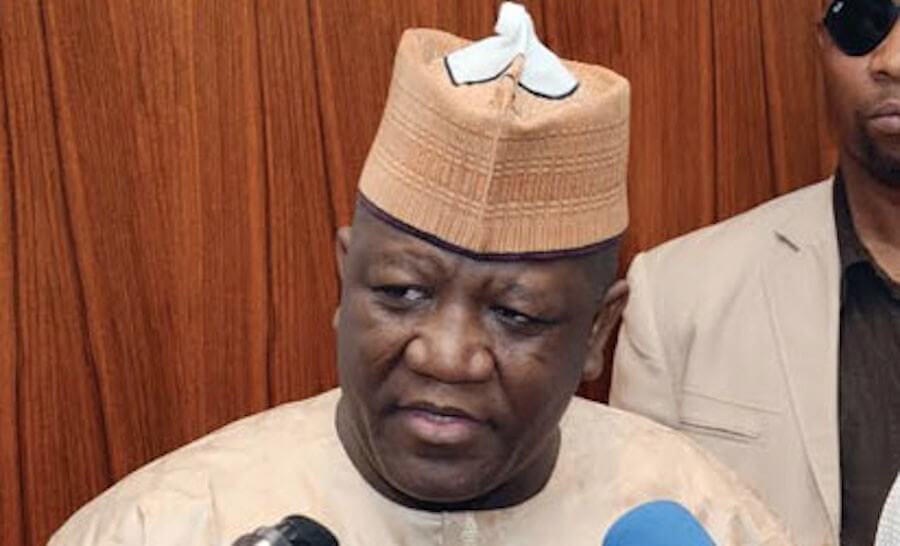
“They (Terrorists) are in control of the kind of weapons that the security command in Zamfara does not have. In one armoury alone, they have more than 500 AK 47 rifles. We saw it.
“Our people were even given the chance to take pictures. But when we said we would dialogue and offer them amnesty, if they surrendered their arms, they refused,” Mr Yari said.
Analysts alleged the shortage of arms to fight the terrorist groups in Nigeria to the activities of corrupt government officials siphoning the funds meant for the purchase of arms to private pockets.
“The problem is there have been allegations of diversion of money in the defence sector. So, these new ministers should investigate what happened. If the soldiers are saying they don’t have enough arms it means someone is pocketing the money meant for procurement,” Mr Hussaini said.
He said soldiers should be trained on the new tactics of war, different styles of combat, and equipped with the intelligence directorate to gather, analyse and work efficiently on threats,7among others.
“The country is not safe as everyone knows, so the defence ministers need to start working as soon as he assumed office. He has to engage the governors, traditional leaders and other stakeholders in all the states because he needs to understand the situation first before acting. But above all, our security agents must be encouraged by the minister in addressing the crisis for us to win against terrorism,” said Muhammadu Aliyu, a conflict and peace studies lecturer at Federal University Dustin Ma in Katsina State.
A retired army Lieutenant Colonel, Rabiu Yandoto, said rather than rush to repeat the same strategies that have yielded little results, the new defence ministers should first undertake a study of the security threats in each region with a view of understanding them well and proferring the right solutions.
“They also need to reach out to various state governors because as you rightly pointed out virtually all the regions in the country have their own peculiar problems. So, the new ministers should reach out to the governors and other stakeholders in the area. We’ve militarised the country and we need to look at other options. I’m from the military but I believe in local solutions. The minister should forget about their differences with some state governors and work together that will give them the chance to know the issues very well before acting,” Mr Yandoto said.
culled from Premium Times Nigeria


